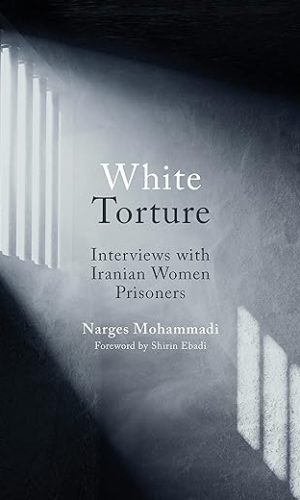Secret Affairs: Britain’s Collusion with Radical Islam
£10.50£11.40 (-8%)
This updated edition of Secret Affairs covers the momentous events of the past year in the Middle East and at home in the UK. It reveals the unreported attempts by Britain to cultivate relations with the Muslim Brotherhood in Egypt after the fall of Mubarak, the military intervention on the side of Libyan rebel forces which include pro-al-Qaeda elements, and the ongoing reliance on the region’s ultimate fundamentalist state, Saudi Arabia, to safeguard its interest in the Middle East.
It illuminates path of Salman Abedi, the bomber who attacked Manchester in May 2017, and his terror network: how he fought in Libya in 2011 as part of a group of fighters which the UK allowed to leave the country to go and battle against Gadafi to topple him.
In this ground-breaking book, Mark Curtis reveals the covert history of British collusion with radical Islamic and terrorist groups. Secret Affairs shows how governments since the 1940s have connived with militant forces to control oil resources and overthrow governments. The story of how Britain has helped nurture the rise of global terrorism has never been told.
Read more
Additional information
| Publisher | Main – Re-issue edition (4 Jan. 2018), Serpent's Tail |
|---|---|
| Language | English |
| Paperback | 544 pages |
| ISBN-10 | 1788160223 |
| ISBN-13 | 978-1788160223 |
| Dimensions | 12.7 x 3.81 x 19.69 cm |










by bill
As a student of the E. Mediterranean region since 1990 who has lived in three countries there, I found this new edition most interesting. A surprise was to learn that there was a ‘covenant’ between our security services and Islamic activists living in Britain, such that they did not cause damage here if we gave them comparatively free rein elsewhere. All in the interest of arms exports and oil imports of course, with Human Rights considerations lagging well behind.
The author, who I heard give a talk in London in 2018, suggests our national interest was sometimes seen (by ‘grey men’?) to be best served by keeping wars going (eg Syria), especially when we operate in our small way with the USA. Some in the Obama administration were obsessive about removing Bashir Assad, that son of London Medical Schools, which drove him to call Russia to his defence. In 2018 I watched our token effort at first hand at our Akrotiri air base in Cyprus when two fighters took off, reportedly to fire two missiles (only) from outside Syrian airspace. Good training?
Among the aspects not reported (hence four stars), is the importance of Qatar’s close relationships with the old British establishment, and their wish to finance a pipeline across Syria to export some of their massive volumes of natural gas to Europe via an E Med. terminal. It is not surprising that the Russians thought this might harm Gazprom’s sales. A sort of precedent had been set with the BP-led oil pipeline built from Azeri Baku on the Caspian Sea to the Med. in Turkey.
The Qataris were of course so kind as to rescue Barclays Bank in 2008, hugely unburdening the Treasury by so doing.
It is not openly stated that BP remains effectively an implementer of foreign policy, despite its privatisation, and Lord Curzon’s tiny Kuwaiti emirate out of which BP emerged has served Britain very well over the years, and certainly had to be defended when the intransigent Saddam Hussein refused to accept Production Sharing Agreements. A more recent national initiative detailed here was in Libya where the Anglo-Dutch ‘Shell Group’ had got in first with a deal signed in 2004, but BP/UK won in the end with a £15bn deal in 2007. Shell subsequently changed its name to ‘Royal Dutch Shell’ and established its head office in the Netherlands where its only AGMs are now held. Collateral damage perhaps.
The author gives useful information that confirms the true nature of the Syrian ‘moderates’ (or the White Helmets ‘NGO’), who were the basis of the so-called Free Syrian Army rebels, many of whom were extremists out of control, and being supplied with arms and training by Britain. The last words in the book are: ‘(British collusion) increased the terrorist threat in Britain and the world; a distinctly immoral aspect of foreign policy that has made Britain, the Middle East and much of the rest of the world deeply insecure.’ That conclusion from a former RUSI Research Fellow. Brave!
by Mr. D. T. Marchesi
Mark Curtis again offers a run-down of the various ways the UK state has ill-served its own people ( 7/7) and what is, one supposes for want of a better word, called “democracy” – to be pronounced in a strong Texan accent, in honour of the late president Dubya.I say “state” since the mandarins collude with the politicians, ideologists and spin-doctors to hide the unpleasant truth that the UK has supported, protected and continues to support the main sponsors of jihadism. The role of the Saudis is virtually never allowed to surface in our media; nor that of the Pakistani regimes from Benazir Bhutto ( well, from Zia) to the present.The ritual bleat from Mr Cameron regarding Pakistan’s mixed, shall we say, response to militant Islamists no doubt provides a moment’s tv infotainment, but the revelations in Curtis’s book show how “our” chaps have nothing to learn in double-talk from, say, the Muslim Brotherhood, whose activities down the years and across different countries, including the UK, are analysed in this book.I did not find the book quite as flowing as others by Curtis, and a full annotated bibliography would be useful in a second edition. As in Unpeople and Web of Deceit by the same author, however, the muck-raking is timely, revealing and well-put together. One hopes that many young subjects of Her Majesty will read this account , and perhaps conclude that most of us do not actually have a lot in common with the Saudi monarchy, despite the fawning assertion of the FCO in a 2005 document Curtis cites but which did not get the attention from our press that it merited.No more than the Strategic defence review which Blair designed to justify “humanitarian interventionism”; nor the 2007 projection of our energy needs. Finally, as Greenspan so unwisely remarked, it is about oil, of course.And about both our nostalgia for empire and our junior partnership status with the MegaPower.The image of Blair as Bush’s poodle was perhaps vulgar, superficial and a little flippant, but it encapsulated a healthy popular insight.In case any reader should conclude from this comment that Curtis downplays the UK role in the genesis and persistence of jihadism , I must say that, on the contrary, he emphasises how large, multi-facetted and perverse our part has been.